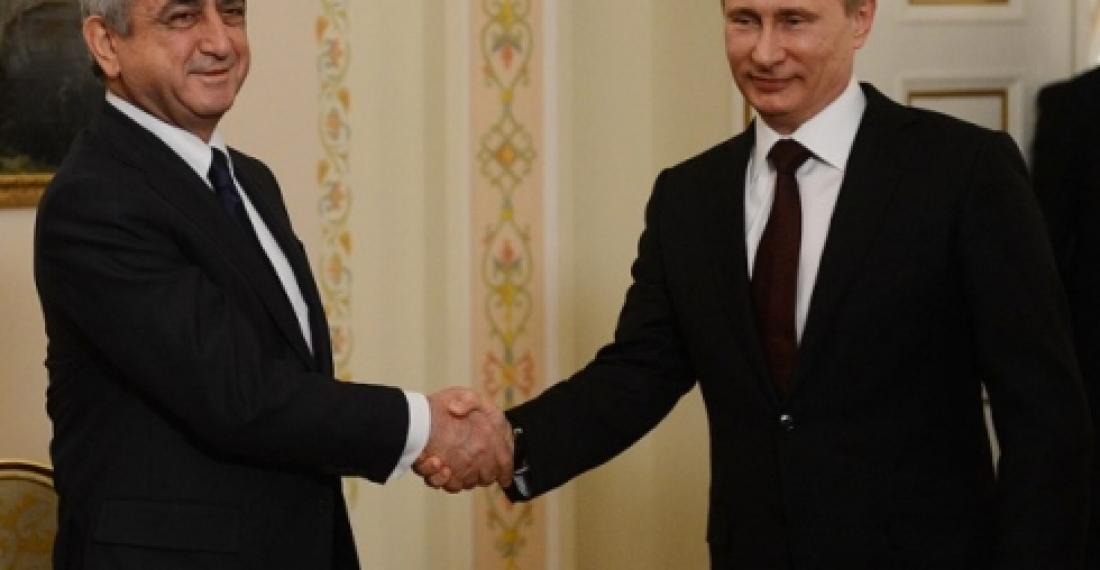Serzh Sargsyan has not yet been sworn in for his second term as President of Armenia, but his visit to Moscow this week obviously could not wait. If Armenia is hugely dependant on Russia in a number of spheres, Sargsyan own political fortunes are even more so.
In this regard the endorsement of President Vladimir Putin at the meeting held in the Kremlin on 12 March was for Sargsyan's not just important but crucial. According to the website of the Armenian President, "at the beginning of the meeting, the President of Russia thanked the President of Armenia for the visit and considering the fact that this was the first visit abroad of President Sargsyan after the elections, once again congratulated Serzh Sargsyan on his convincing victory in the elections. According to the President of the Russian Federation, almost 60 percent of the votes is an excellent result which testifies to the trust of the people and allows to implement all the programs which the President of Armenia had preset before the start of his pre-election campaign."
The Russian media earlier this month speculated that there was disquiet in the Kremlin at the surprise strong performance of opposition candidate Raffi Hovannesian in the February 18 presidential election, including in the areas around Gyumri where Russia has a military base which employs thousands of local Armenians.
Commonspace.eu political editor said in a comment, "Russian-Armenian relations are in many ways extra special with both leaderships committed to keeping it this way. A lot of this relationship is of mutual benefit. Its roots however remains Armenia's sense of insecurity. Surrounded by real or perceived enemies Armenia sees in Russia not only a friend but also a guarantor for its safety. A relationship built on fear is not ideal but can be enduring. However this relationship may also be giving Armenia a false sense of security. It is an unequal relationship with Armenia overly dependent on Russia in the military, political and economic spheres. President Sargsyan's visit to Moscow this week looked too much like an attempt to secure the blessing of the big patron in the face of an increasingly difficult situation at home.
Sargsyan has shown some willingness to move to reduce Armenia's dependence on Russia. His flirting with Turkey in 2008 backfired largely through Turkey's fault. A similar flirting is now going on with the European Union. The EU has wisely decided to play ball. Time will tell if Sargsyan will see this one through."
source: commonspace.eu
photo: President Sargsyan during his meeting in Moscow on 12 March 2013 with President Putin of Russia (picture courtesy of the Press Service of the President of Armenia).







